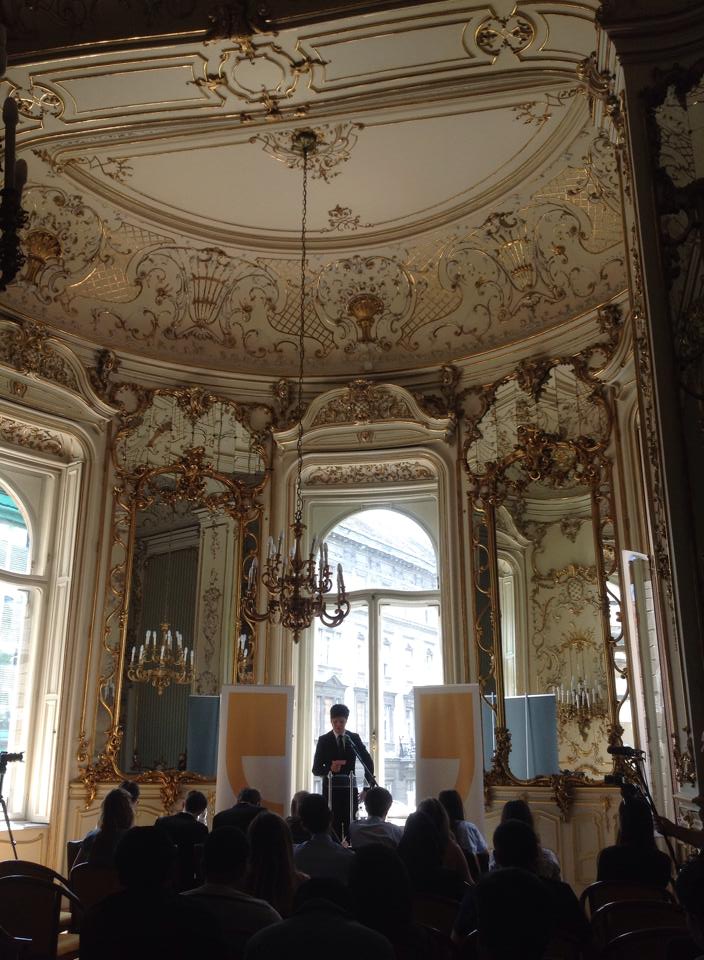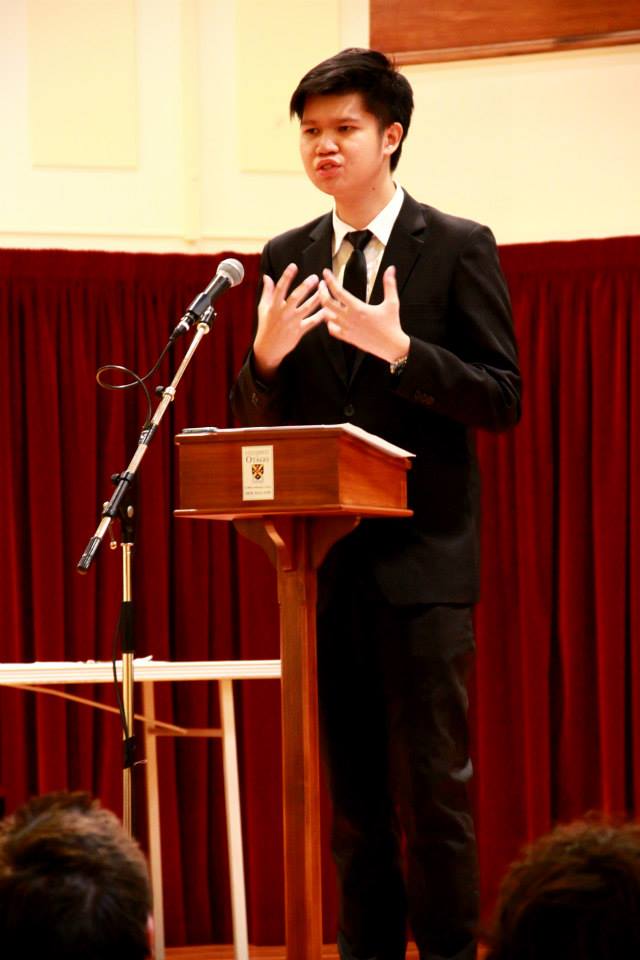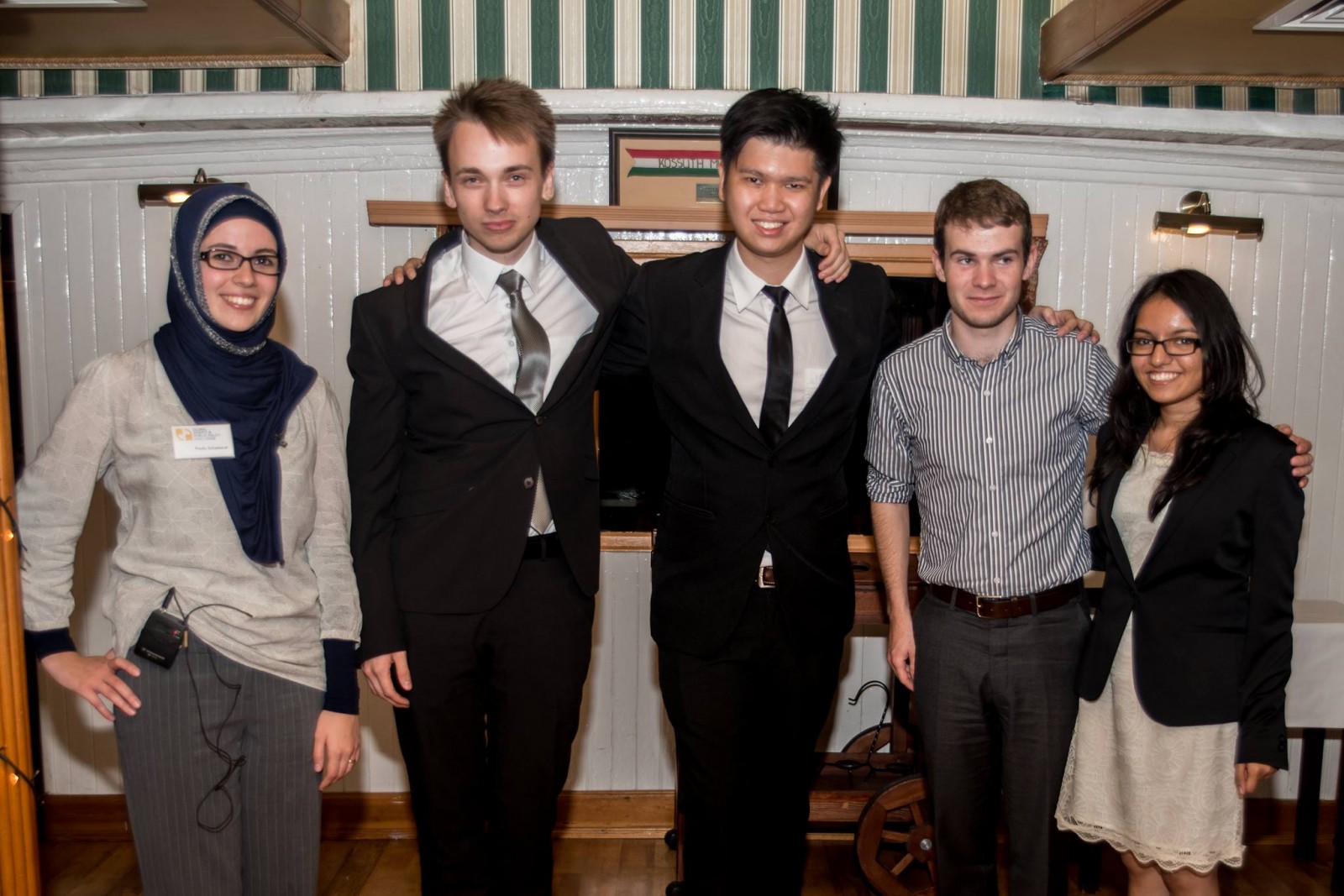IT bodes well for our debating fraternity that Lim Wei Jiet has become the first Malaysian to win at the Global Debate and Public Policy Challenge (GDPPC).
Lim was one of four winners of the GDPPC’s Budapest Forum, and imagine this: it was only four years ago that the 23-year-old was introduced to debating at his Bachelor of Laws orientation at Universiti Malaya, before becoming one of five winners in Hungary.

Lim in action at the Budapest Forum 2014, the final stage of the Global Debate and Public Policy Challenge (GDPPC).
According to Lim, the tournament, which was held from June 23-27, was rigorous as it wasn’t just about debating. Lim, a first-time participant, revealed that thousands of public policy briefs on this year’s theme, Rethinking Drugs, were submitted.
Following a series of events, including a mock parliamentary briefing, Q&A session with some of the leading drug policy experts from the United Nations and Columbia University and a debating competition, Lim came out on top. He shared that accolade with Matthieu Ostrander from the United States, Jaai Vipra from India, Aisha Paola Schietekat from Mexico and Rauno Kiviloo from Estonia, all of whom walked away with US$10,000 (RM31,745) each.
Then, Lim flew to New Zealand for the Australasian Intervarsity Debating Championships, where his team were one of the grand finalists. Although they didn’t win, Lim was chosen as one of top five speakers of the English As A Second Language category.

Sweet talker: debater Lim Wei Jiet at the Australasian Intervarsity Debating Championships in New Zealand, where he was among the top five speakers in the English as a Second Language category.
With his participation in these competitions, being absent from class was always going to be inevitable. Although he admitted catching up with his course work could get pretty stressful, it has taught him to study smart.
And that’s not all that he has learned from debating.
“Debating allows you to come out of your comfort zone and encourages you to look at all sides of an argument instead of the usual assumptions and prejudices we have towards certain issues. And you tend to question statements people make and be more critical,” said Lim.
“You also need to be very knowledgeable about global issues. So, it exposes me to information beyond law school.”
Lim added that debating also helps train a person to think faster while it broadens their minds with endless possibilities, especially when he has to defend a topic he doesn’t agree with. Or when opposing debaters “argue” in an unexpected way.
Lim revealed that adding emotion to a debate makes an argument more persuasive because it shows sincerity and passion.
But taking part in a debating tournament isn’t just about being a good speaker. Other preparations involve training and tons of reading. Part of that preparation includes saving important information and reading them a few hours before a tournament. “It’s not about memorising everything. You just need to have the main points at your fingertips, that’s all,” he said.
Lim credits his debate coach, associate professor Dr. Chandran Somasundram for his success. He gives equal plaudits to his parents for their guidance and support.
Lim’s involvement at international tournaments is just one of the many marks left by Malaysian debaters on the international stage.
“I think Malaysian debaters are quite visible at international level. There are so many tournaments in the debating calendar each year,” said Lim.
“Secondary school kids are very bright and talented as well. The debating team of SMK Damansara Jaya won the Asian Schools Debate Championship in June, so they’re pretty good.”



Tell us what you think!